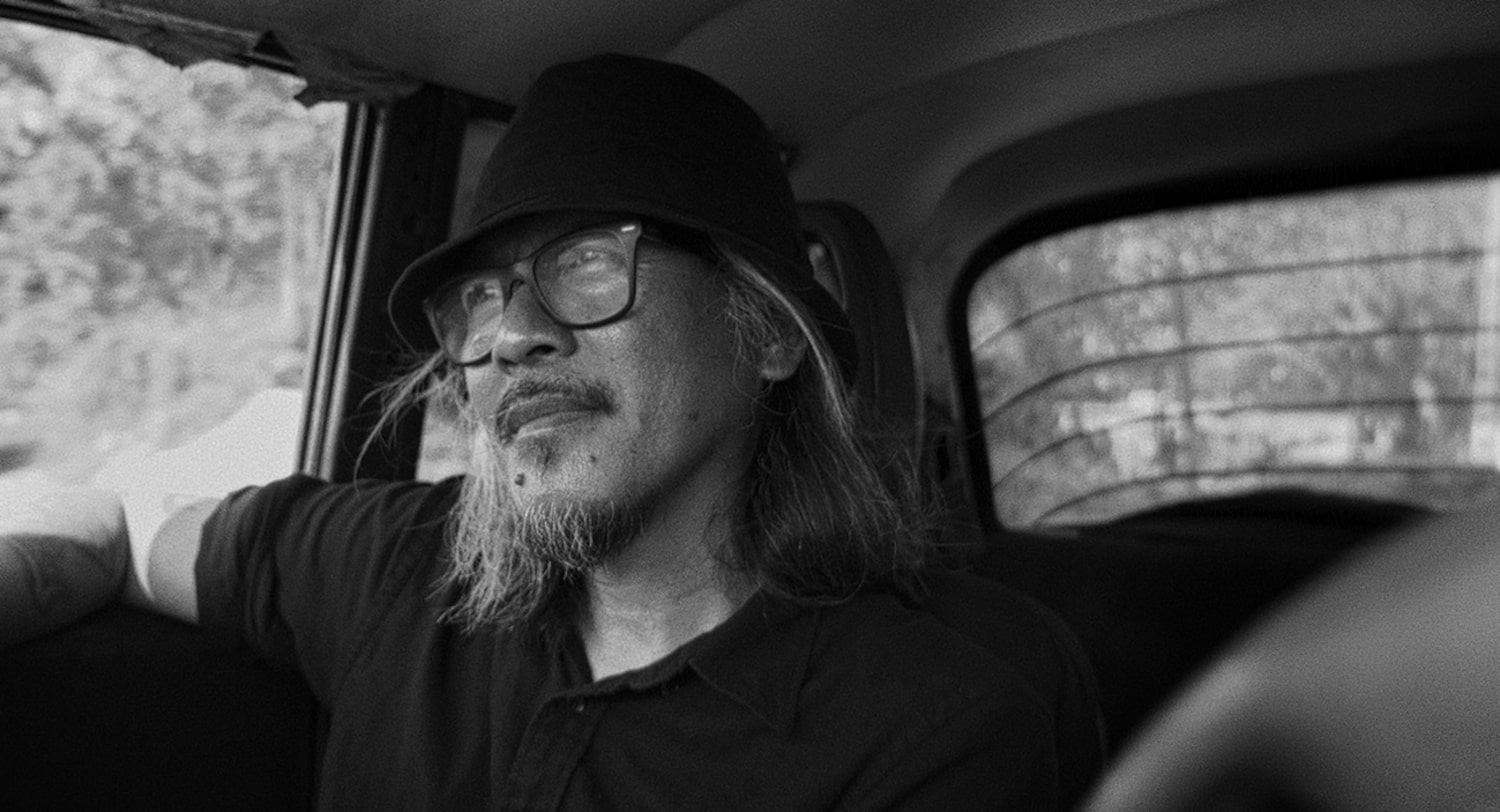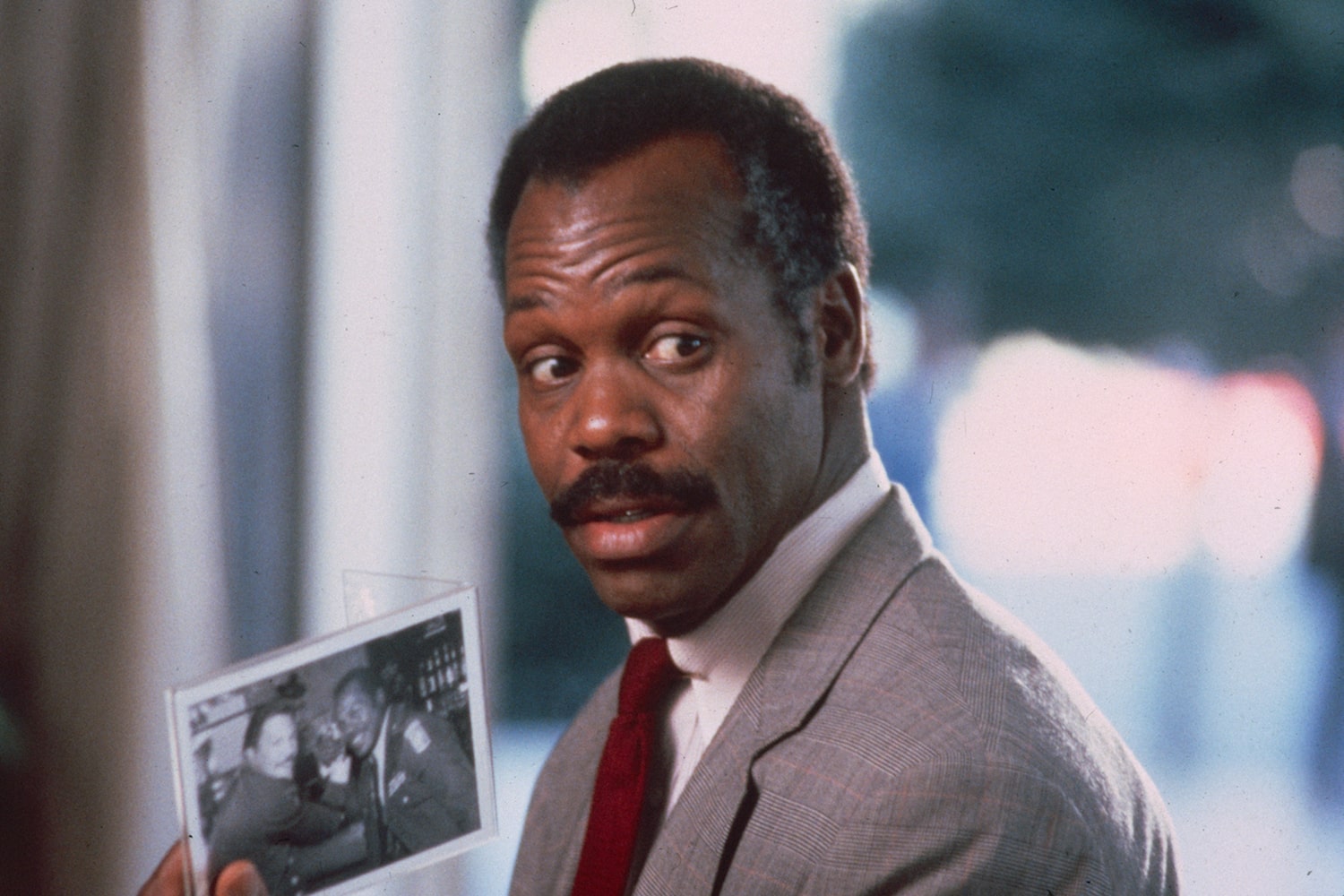It’s never easy to wade through any festival lineup, especially one as rich and provocative as the Official Selection of this year’s Visions du Réel.
With limited time as a virtual attendee this year, I chose to focus on the medium and feature-length Burning Lights competition, dedicated to, “new, free, adventurous and contemporary perspectives in cinema.”
These three films in particular couldn’t be more different in content; one recalls a man’s adolescence in late-1970s Russia, another imagines the fate of one of Ferdinand Marcos’ generals, and the final one plays out a fictional deposition involving Tom Hanks.
Yet threading these disparate stories together is a distinct consciousness of cinematic form and construction, and an understanding of those elements’ ability to shape our memory of the world and ourselves.

Chasing History Down in Cuba
Perhaps the most conventional of the trio, Tommaso Santambrogio’s Taxibol (2023, above) nevertheless demonstrates the power of cinematic imagination as a tool for collective reflection. Santambrogio cites two people as inspiration: a taxi driver in Havana named Gustavo, a self-proclaimed world-traveler, and Filipino film director Lav Diaz.
In the film, Stantambrogio facilitates a wonderful encounter between Diaz and Gustavo whilst on a journey in his taxi, where they overcome linguistic boundaries to muse on life, love, and injustice. It is during this conversation that Diaz reveals to Gustavo the true purpose of his visit to Havana: to find one of Ferdinand Marcos’ generals, Juan Mijares Cruz, who supposedly lives isolated somewhere in Cuba, and kill him. And he wants Gustavo’s help.
Completing Taxibol’s swift 50-minute runtime is an extended sequence of a silent, old man going about his everyday life, attended to by an equally wordless staff of servants, on a large, isolated compound. The mundanity of these scenes is punctured by recurring nightmares we don’t get to see. There is no explicit instruction to see this man as Cruz, but we’ve learned enough by now to shade these images with the evil we know about him, making it easy to project onto his aged, weary face.
One could read Taxibol as a renewed response to the political climate in the Philippines, since Bongbong Marcos, son of Ferdinand, re-established their name in politics when he was elected President in 2022. Much to Santambrogio’s credit, the brief story of the old man plays out like a Lav Diaz film, though it skirts along the limits of pastiche: long takes are sketched in by deliberate blocking and gestures; illustrated by stark black and white photography; and all in the service of cinematically mapping out the collective memories of a traumatised country.
Communism, Shame, and Parental Guidance in the Soviet Union
Catarina Mourao’s Astrakan 79 (2023, feature and above) couches moving depictions of remembrance and sharing in a collage of familiar documentary strategies. On one level the film tells the story of Markim who moved to the Soviet Union as a teenager in 1979, inspired by the communist ideals of his childhood in Portugal. But at its core, the film is about the act of passing on experiences – ones marked by shame and perceived failure – through a conversation between Markim, now in his late 50s, and his son. Still images, voiceover narration, talking heads, and filmed reenactments are tried and true documentary methods, but in illustrating Markim’s tumultuous year abroad they are imbued with a consciousness you don’t often register in other films.
It’s hard to identify why there is an element of self-awareness in Mourao’s efforts here. Maybe it’s the overt construction of the scenes with a young Markim, or the deliberate staging of Markim’s son while he plays the clarinet (music that accompanies other sections of the film). Maybe the scenes of Markim moving around what Mourao calls the “memory room,” adorned with the images of his own past, lends the subsequent commentary on them a particular authority rooted in an awareness of their purpose. Whatever the case, the nostalgia surrounding Markim’s past, his everyday life of isolation and transience in Russia, grounds the film in weighty irony.
It dovetails with the ironic struggle of seeing our parents as real people with lives and fraught histories of their own, and vice versa, a truth that Markim’s son can already recognize. The incongruity between our expectations of the world and its reality is a timeless conflict, one that feels increasingly relevant today. Mourao’s greatest accomplishment is to make the inevitable, abstract loss of the ideal — be it the great promise of a new world or the impenetrable strength of our parents — feel bearable.

The Dangers of Cinematic Memory
James Kienitz Wilkins’ Still Film (2023) was highest on my priority list, having had the pleasure of working with his previous feature, The Plagiarists (2019), for a season of American independent films I programmed at the Institute of Contemporary Arts in London. Wilkins’s films repeatedly confront the troubling aspects of our fascination and reliance on signifiers of identity, representation and truth in media, often doing so by simultaneously reflecting on the history and mechanics of filmmaking. Still Film continues this practice, utilising his signature rapid-fire dialogue and a concise but subtle deconstruction of images, by confronting the icons of popular cinematic memory, and excavating their dark truths.
On paper, Still Film’s premise would perplex most, and the film’s breathless dialogue and conspiratorial streams of consciousness further muddy the waters. But that’s largely the point, for Wilkins’s main concern in Still Film, apart from his preoccupation with uncertain truth and media representation, is with memory – specifically its impermanence, fluidity, unreliability, and inextricable ties to cinema. The visual component of Still Film, simply enough, is made up entirely of still unit photography from movies from the 1980s and 90s. For the casual movie watcher and rabid cinephile alike, this smorgasbord of imagery guarantees a warm nostalgia trip, but Wilkins is keen to point out those dangers.
The witness in Wilkins’s fake deposition is a filmmaker and former boom operator, one of the invisible people on a film set, someone keenly aware of the ways in which many people responsible for image-making are forgotten. Wilkins’ witness asks us, if people use the movies to obtain a sense of self, shouldn’t we be concerned about the ways those images, which form their place in our memory, are mediated? Unsurprisingly, Wilkins the filmmaker remains dubious about the goodness of commercial cinema, just as he was in The Plagiarists. Are movies the root of our discontent, the promise of something that can’t be delivered? Still Film, thankfully, offers no concrete answer. Instead, it allows us to open ourselves up to its questions with each successive viewing.
Chris is an American freelance film programmer, writer, and critic based in London. He fills the rest of his time working in film distribution.




